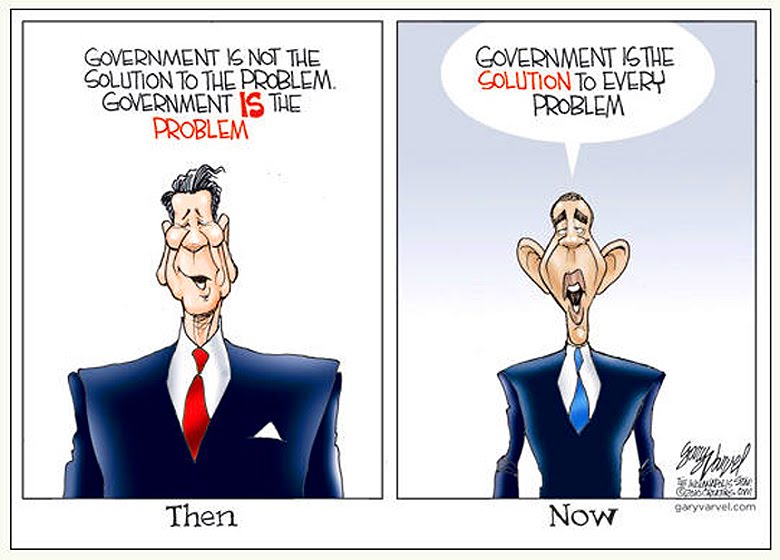 I first wrote about the Fornicalia Business Exodus here. And a long post it was.
I first wrote about the Fornicalia Business Exodus here. And a long post it was.
I listed, in detail, the 69 most recent businesses having fled the state. Not just “Mom and Pop” businesses but serious businesses responsible for big payrolls.
I wrote here about the reasons listed for those businesses having fled. They were:
#10 – Unprecedented Energy Costs: The California Manufacturers and Technology Association states that commercial electrical rates here already are 50% higher than in the rest of the country. However, a law enacted in April 12, 2011 requires utilities to get one-third of their power from renewable sources (e.g., solar panels, windmills) within nine years. Look for costs to increase by another 19% in many places to a whopping 74% in Los Angeles. Such new burdens along with upcoming regulations stemming from the “California Global Warming Solutions Act” set potentially overwhelming obstacles to companies here as they try to meet competition based in other states and in foreign nations.
#9 – Severe Tax Treatment: The Tax Foundation in their 2011 State Business Tax Climate Index lists California at No. 49 for tax fairness. CFO Magazine ranked California the worst state for tax treatment. The Council on State Taxation ranks California as the only state to receive a D- grade (the lowest grade). Last year the National Conference of State Legislatures said California remains the number one state in raising taxes – raising them higher than any other state that increased taxes in 2009.
#8 – Worst Regulatory Burden: The consulting firm Bain & Co. constructed a “regulatory hassle index” that found “California is far worse than any other state by a very significant margin.” The finding was echoed by Development Counselors International that found that 72% of surveyed corporate executives listed California as having the “worst business climate” in the entire United States. The newest survey, released in March 2011, found that 87.7% of California executives who also operate in several states say California is a harder place to do business than anywhere else. The survey, by the California Foundation for Commerce and Education, found that among the other 12.3%, not one executive said it’s easier doing business in California.
#7 – Dreadful Legal Treatment: The Civil Justice Association of California said the state ranks 44th in legal fairness to business. Los Angeles was again named the least fair and reasonable litigation environment in the entire country.
#6 – Most Expensive Business Locations: The Rose Institute of State and Local Government reported in its 2010 survey that California cities continue to be some of the most expensive locations to do business in the United States. That was confirmed by the Milken Institute, which found that California businesses are paying 23% more than the national average just to operate here.
#5 – Provable Savings Elsewhere: Again Bain & Co. found that more than half of California business leaders – an astonishing 60% – said their policy is to restrict job growth in the state or move jobs to other U.S. locations. Some companies are quite open about this, like Intel, which has said it will never build another plant in California, and McAfee in 2010 admitted it intentionally avoids hiring in California and saves about 30 to 40% every time it hires outside of the state.
#4 – Downright Unfriendly: The Small Business & Entrepreneurship Council in Virginia found that California ranked 49th overall in terms of business friendliness. That was echoed in February 2010 when The Mercatus Center at George Mason University ranked California 48th in economic, regulatory and personal freedoms in the 50 states.
#3 – Uncontrollable Spending: Extravagant spending causes California to now have the lowest credit rating of any state. The American Legislative Exchange Council points out: “Despite the dubious distinction of having both the highest statewide personal income tax and the highest state sales tax in the nation, California still finds itself with far and away the largest budget deficit of any state.”
#2 – Excessively Adversarial: For two years in a row Chief Executive magazine found California to be the worst state in the nation in which to do business. Said one CEO, “California is terrible. Even when we’ve paid their high taxes in full, they still treat every conversation as adversarial. It’s the most difficult state in the nation.” The magazine calls California the “Venezuela of North America.”
#1 – The ‘Outpouring’ of Poor Rankings Continues: California ranked dead last in the latest Pollina Corporate Top 10 Pro-Business States for 2010 study. The finding was based on a composite of labor-related factors, business and personal taxes, the litigation environment, demographics, crime rates, school dropout rates, lifestyle and a multitude of other issues. There is little evidence that California’s business environment will improve considering that that the legislature in 2011 has voted down litigation reform, tax-increase plans are underway, and a host of new regulations are to be implemented that will increase costs for literally every business.
Tom McClintock had this cautionary tale: as Fornicalia IS, so does Mr Obama wish.
With all that, comes a study:
The Great California Exodus: A Closer Look
Tom Gray & Robert Scardamalia
EXECUTIVE SUMMARY:
For decades after World War II, California was a destination for Americans in search of a better life. In many people’s minds, it was the state with more jobs, more space, more sunlight, and more opportunity. They voted with their feet, and California grew spectacularly (its population increased by 137 percent between 1960 and 2010). However, this golden age of migration into the state is over. For the past two decades, California has been sending more people to other American states than it receives from them. Since 1990, the state has lost nearly 3.4 million residents through this migration.
This study describes the great ongoing California exodus, using data from the Census, the Internal Revenue Service, the state’s Department of Finance, the Bureau of Labor Statistics, the Federal Housing Finance Agency, and other sources. We map in detail where in California the migrants come from, and where they go when they leave the state. We then analyze the data to determine the likely causes of California’s decline and the lessons that its decline holds for other states.
The data show a pattern of movement over the past decade from California mainly to states in the western and southern U.S.: Texas, Nevada, and Arizona, in that order, are the top magnet states. Oregon, Washington, Colorado, Idaho, and Utah follow. Rounding out the top ten are two southern states: Georgia and South Carolina.
I highly recommend reading the entire Manhattan Institute study, replete with graphs, charts, statistics and references.
But the bottom line is truly this: Representative McClintock makes the best and final argument for a vote against Mr Obama in November:
As Fornicalia is now, so will the United States become under Barack Hussein Obama.
BZ
 I haven’t done this for awhile. That is to say, just sat back with an adult beverage — Ketel One mixed with Fuji Apple flavored seltzer water — and let things go “stream-of-consciousness” from my Mark I, Model I brainulus.
I haven’t done this for awhile. That is to say, just sat back with an adult beverage — Ketel One mixed with Fuji Apple flavored seltzer water — and let things go “stream-of-consciousness” from my Mark I, Model I brainulus. I am proud of the fact that I am a Silverback, that I am an Oathkeeper and that I am a Sheepdog. I will always be a Sheepdog. For that meaning, please go here.
I am proud of the fact that I am a Silverback, that I am an Oathkeeper and that I am a Sheepdog. I will always be a Sheepdog. For that meaning, please go here. The thunder is louder. A bit far away but closing still. I am starting to feel it in the floor of the cabin.
The thunder is louder. A bit far away but closing still. I am starting to feel it in the floor of the cabin.


